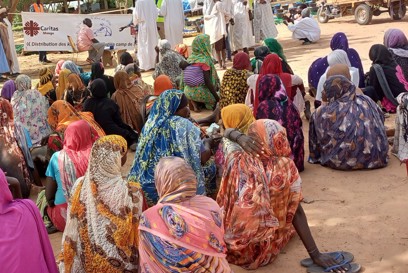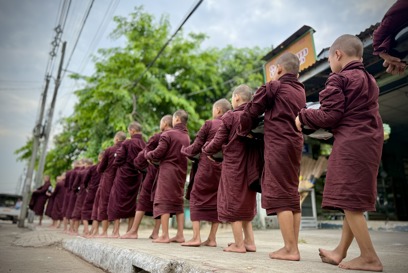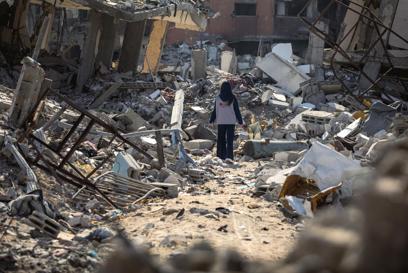In the two weeks following the ceasefire 76 Caritas trucks crossed the border carrying vital supplies. These goods - including food, bedding and shelter supplies – will support twelve relief distribution points, four offices, and four warehouses in Deir al-Balah, Khan Younis, and Gaza City.
Included in the relief efforts is the delivery of 8,000 winter clothing kits, all supported by funds from the Caritas Australia Gaza Emergency Appeal. This is crucial amid harsh winter conditions including strong winds and heavy rain, which has caused flooding and damage to shelters. The cold conditions led to the deaths of 8 infants due to hypothermia in late December and early January.
Sally Thomas, Humanitarian Emergencies Manager at Caritas Australia said, “We are immensely proud of our partners in the region, who have been working incredibly hard to get goods across the border amid challenging and unstable circumstances. Adding to the complexity is the mass movement of people, as people understandably seek to return to their own neighborhoods and get some respite from the overcrowded conditions in the south.”
In the week following the ceasefire, more than 423,297 people - close to a quarter of the total population - are estimated to have moved to northern Gaza, many of whom were displaced from their homes in the area in October 2023. Partners are bolstering operations in the north to support this alongside the continued assessment of needs in the south.
“We cannot stress enough how great the need is despite the ceasefire. For nearly a year and a half, families have been malnourished, dehydrated and repeatedly displaced. Many have sustained severe physical and psychological traumas without receiving adequate medical care. Urgent, life-saving humanitarian aid will be the priority for months, so we remain grateful to our supporters as their generosity is helping Caritas provide that” concluded Sally Thomas.
The Gaza Emergency Appeal has been running since October 2023, during which time partners have supported 226,225 families, comprised of 1,357,350 people, with emergency food, shelter assistance and clean drinking water, as well as psychosocial support for children.

















